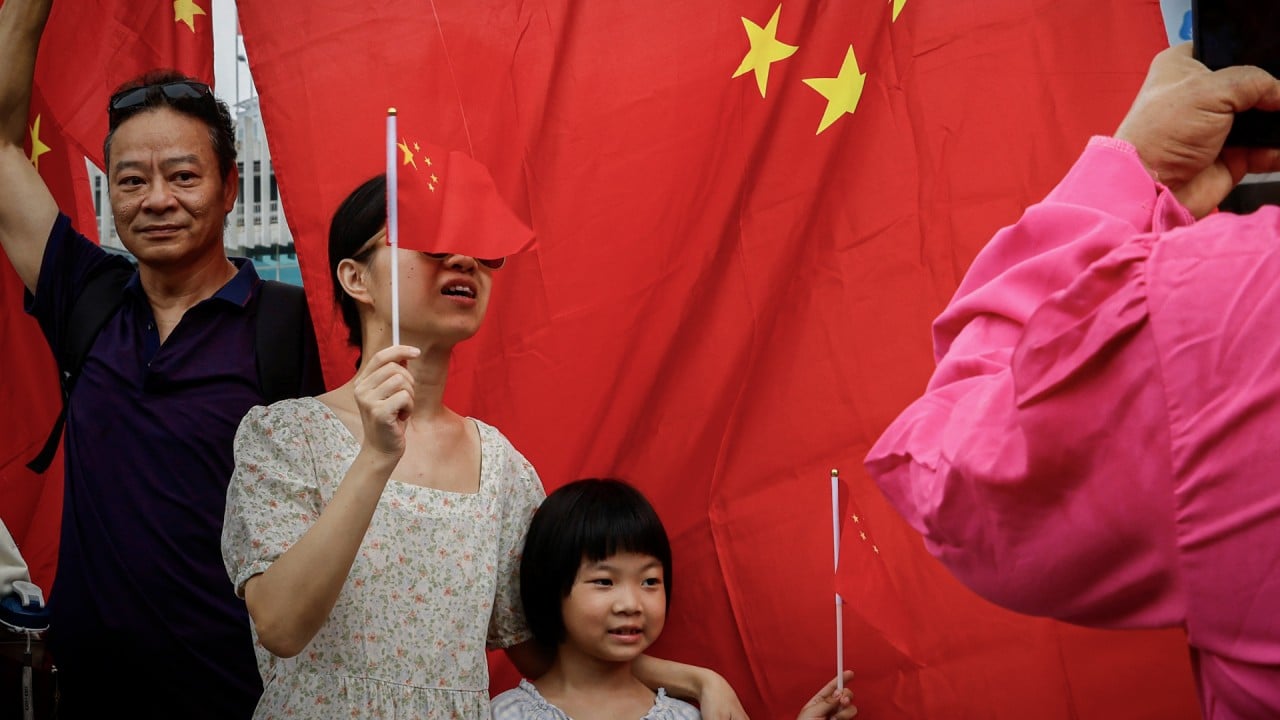
HK$2.29 billion in funding sought for Hong Kong baby bonus scheme, with number of births expected to rise by 20% to 39,000 a year
- Government is seeking Legco Finance Committee approval for almost HK$2.29 billion in funding for Newborn Baby Bonus scheme
- Authorities predict that from 2024-25, the number of births will increase by 20 per cent from around 32,500 in 2022 to about 39,000
Hong Kong authorities are seeking almost HK$2.29 billion (US$293.6 million) in funding for a three-year baby bonus scheme which will give parents a HK$20,000 cash handout for each newborn as they expect the number of births to rise by a fifth to about 39,000 annually.
The government, in a paper submitted on Friday to the Legislative Council’s Finance Committee for discussion, proposed the creation of a new non-recurrent commitment of HK$2.286 billion for the implementation of its Newborn Baby Bonus scheme.

Authorities predicted that from 2024-25, the number of births would increase by 20 per cent from about 32,500 in 2022 to around 39,000 each year.
The proposed amount would be for eligible babies born within the three-year time frame between last October 25, when the scheme was announced, and October 24, 2026.
The government said it expected the bonus could start to be handed out from late February, subject to the Finance Committee’s approval.
“We aim to create a childbearing-friendly environment while building a social consensus of reversing the trend of declining fertility rate,” the government said in the paper. “We hope that the Newborn Baby Bonus will provide an impetus for hesitant families to proceed with childbearing.”
Hong Kong’s birth rate fell to a record low in 2022 when the average number of children per woman dropped to 0.9.
The number of new births plummeted from 52,856 in 2019 to 43,031 in 2020, and continued to dip to 36,953 in 2021 and 32,501 in 2022.
The city has one of the longest life expectancy rates in the world. The proportion of people aged 65 and above is expected to increase from 20 per cent to nearly a third over the next decade.
Lee announced in the policy address that the government would provide a one-off HK$20,000 bonus to eligible parents for newborns, with the scheme to last for three years.
The baby must be born in Hong Kong and at least one parent must be a permanent resident at the time of application.
The government said it expected that about 95 per cent of newborns in Hong Kong would be eligible for the bonus in each of the next three years, based on birth registration statistics for 2022.
Paul Yip Siu-fai, the chair professor in population health at the University of Hong Kong, said he did not expect to see a 20 per cent increase in the number of births despite the bonus and other incentives designed to boost the number of babies.
“A 20 per cent growth is too optimistic,” he added.
Yip said the plunge in the number of births over the last three years was caused by the migration of young people and an ageing population, as well as the years-long coronavirus pandemic.
He added that although the new measures would boost the spirit of couples, they still faced problems such as the substantial cost of raising a child in the city.
Other considerations included worries about their children’s education and job prospects, as well as high housing prices – all deep-seated factors that had discouraged people from having babies, he said.
“We haven’t seen an improvement in the overall environment,” Yip said, appealing to the government to resolve the main causes of the low birth rate.
Yip said he expected the number of births in Hong Kong to remain at a low level or at best register a slight increase.
“The number of births has remained on a declining trend, which has not bottomed out yet,” he added.
Families with newborn babies will also enjoy a better chance to buy subsidised flats, with 10 per cent of such homes for balloting reserved for them. They can also join the normal balloting with other applicants to purchase a home and will be given priority in the selection of properties.
Eligible families can enjoy the benefits until their children are three years old.
Another new scheme, to start in April, will cut the waiting time for public housing flats by a year for applicants with newborns.
Other policy address proposals to create a better childbearing environment include raising the accommodation-related tax deduction ceiling, as well as increasing the public service quota for assisted reproductive services and providing a tax break for them.
Increasing the Working Family Allowance and boosting the number of childcare centre places and allowances are among the other proposals.


